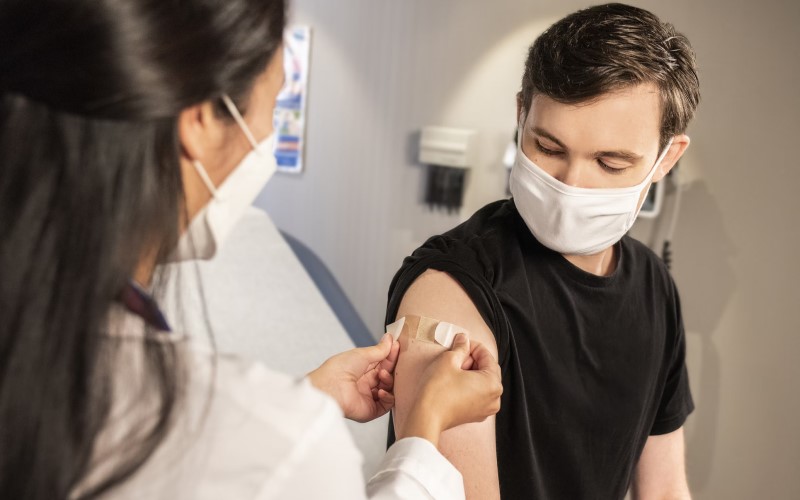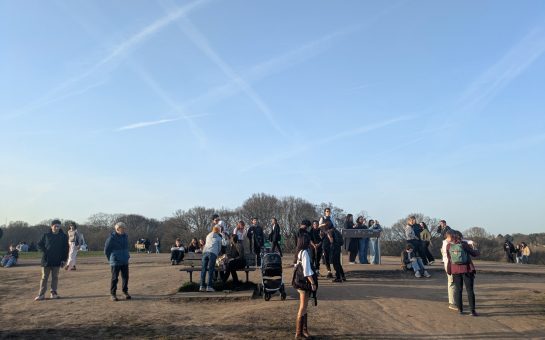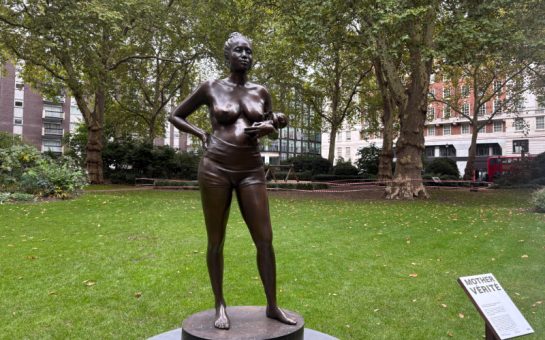When Harun Tulunay, 35, found out he had monkeypox, he had already been experiencing symptoms for two weeks but no one seemed to take him seriously or know what was happening.
Among other symptoms, he had a high fever, a rash, muscle and back pain, and swollen glands.
He went to the emergency services several times, but each time he was told it was not serious.
He called his GP who told him that maybe his HIV medication was no longer working.
Harun, who is a sexual health and mental health advocate and training coordinator at Positive UK, said: “I have never had any HIV related issues or symptoms in my life.
“It was really scary when they said that.”
When his symptoms worsened, he was hospitalised and after four days received the diagnosis – he had monkeypox.
Monkeypox is a viral disease that has been reported in more than 90 countries since May, with more than 40,000 confirmed cases.
This is the first time monkeypox has been found in such a large number of locations outside of West and Central Africa, where it is usually reported, and there are currently thousands of cases in the UK with a large proportion in London.
Because of the rapidity with which the virus is spreading, the World Health Organisation labelled it a ‘Public Health Emergency of International Concern’ on 23 July and urged the world community to coordinate and stop the spread of the virus.
The first symptoms of monkeypox are a high fever, a headache, swollen glands, tiredness, and after one to five days after the first symptoms a rash can develop on the face and then other parts of the body, usually feet, hands, mouth, genitals and anus.
Although only the most severe cases of monkeypox require hospitalisation, the rash can be extremely painful and lesions can leave scars.
It is not yet clear how monkeypox is transmitted, but scientists have confirmed that it occurs mainly through skin-to-skin contact.
The NHS in fact explained monkeypox can be acquired through any close physical contact with monkeypox blisters or scabs, touching clothing, bedding or towels used by someone with monkeypox, and through respiratory droplets or airborne particles.
Monkeypox is not currently considered as a sexually transmitted disease, and it is still uncertain how contagious the virus detected in some individuals’ semen is, and if the infection is passed through bodily fluids during sex or through close contact between sexual partners.
What is currently known is that the majority of cases have been found among gay and bisexual men and among men who have sex with men, scientists say there is of course no correlation between monkeypox and people’s sexuality.
The reason why the virus is most spread between men who have sex with men depends on the fact that when a virus is introduced into a community – especially a small one – it is more likely to continue spreading within that community.
This high incidence has led to the fear that the LGBTQIA+ community may once again become the target of discrimination and stigma, as had already happened in the 1980s and 1990s.
During those years, gay and bisexual men were disproportionately impacted by the HIV epidemic, and misconceptions and misinformation about the virus facilitated the marginalisation and the stigma against them.
The LGBTQIA+ community has been shamed and blamed, and prejudice has made it extremely difficult to protect those at high risk.
Remembering all the suffering they have experienced, a part of the queer community believes that saying that monkeypox mainly affects gay and bisexual men contributes to stigmatising them.
Harun said: “HIV was considered a gay-related illness and now findings are showing it is spreading faster among heterosexual people.
“We cannot fall into the same pitfall with monkeypox.”
On the other hand, as many organisations and activists have explained, disregard for the needs of a minority and neglect of facts may rather lead to people at high risk not being protected again.
Ceri Smith, Head of Policy at Terrence Higgins Trust, said: “We think that it’s vital that health advice around monkeypox is not stigmatising – and that this has to be led by the information coming from UKHSA and the NHS about the outbreak, the symptoms of monkeypox, and the vaccine rollout.
“We don’t want to do anything to perpetuate stigma and want to reiterate that it is not a virus that exclusively affects gay and bisexual men, but as it stands, this group make up the vast majority of confirmed cases.
“It’s therefore important that gay and bisexual men are aware of the symptoms, what to do if they think they might have monkeypox, and have the information they need about the vaccine and how to access it if they’re eligible.
“This needs targeted and concerted communication to gay and bisexual men at risk of exposure to monkeypox, not broad communications which just mentions gay and bisexual men.”
The lack of information and the limited supply of vaccines are what many members of the LGBTQIA+ community find worrying and dangerous.
Sexual health clinics in London are offering vaccines to patients already registered with their services, but are now facing a shortage of available jabs.
At time of writing, there are no available slots to book an appointment at Central and North West London NHS Foundation Trust and they said they are not able to book vaccine appointments on the phone or in person because of the short supply.
Several days after sexual health clinics announced that they did not have much vaccine available, the UK Health Safety Agency confirmed that there are global supply issues due to vaccine availability and production, and the next supply of doses should arrive in the UK in September.
However, Smith believes that the government’s efforts have not been sufficient from the beginning, with the UKHSA getting enough vaccine to ensure double doses for around half the 125,000 people that the British Association for Sexual Health and HIV estimate need vaccinating.
Smith said: “There is an urgent need for a leadership at senior level in Government, which pulls together Government agencies, local government and sexual health services.”
Moreover, many of those eligible for the vaccine did not receive the essential information, such as how the virus spreads and the possibility of getting the vaccine, through official sources but on social media or through a friend.
Logan Banks, who got the vaccine in July, said: “Twitter and social media is where I found information or my friends did.
“I’m fortunate I read and write English and have no learning disabilities, imagine if English was my second or third language or I had difficulties reading and writing.”
Harun added: “Monkeypox has been around since the 1970s and we never looked into it until it became a ‘white men problem’, but since it is seen as a ‘gay problem’ now, we are still witnessing a lack of action.
“The main problem here should be that someone is getting sick – does it really matter if they are gay, bisexual or straight?
“If they are men or women? It’s the government’s duty to protect everybody’s life.”
The Central and North West London NHS Foundation Trust was contacted for comment.
The UKHSA published an update on August 22, saying smaller but equally effective doses of the vaccine will be offered to eligible patients.
Featured image: Unsplash





Join the discussion